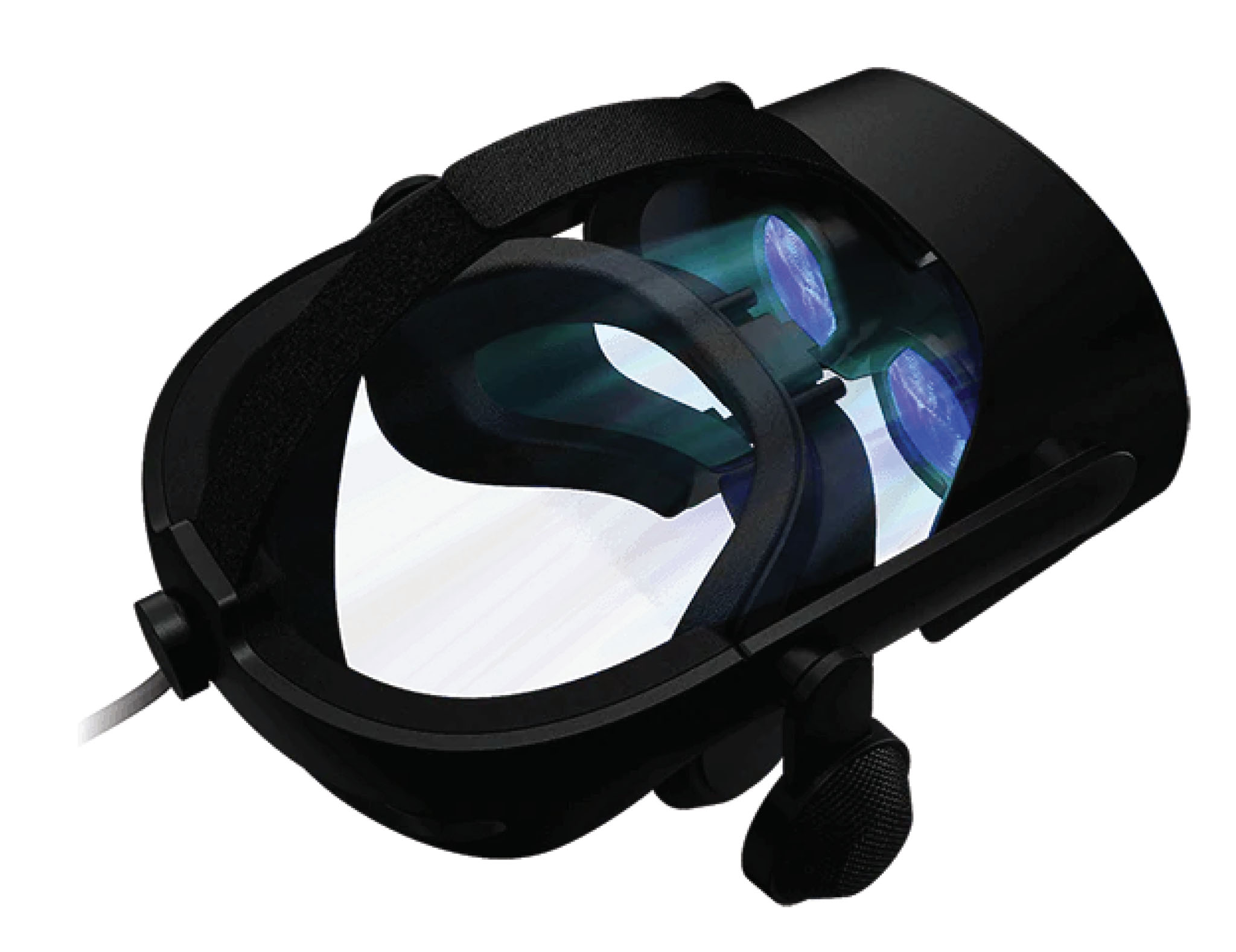
01 Oct HP Reverb G2 Omnicept Edition
HP Reverb G2 has already been released. I did not talked about it in my blog but it can be useful to make a quick presentation :
- keeping same philosophy as the first HP reverb it proposes a display of 2160×2160 per eye and a field of view of 114° (which is a bit more than HTC Vive & Oculus HMD).
- G2 release has added 2 more cameras (4 cameras available so) to achieve the tracking job and controllers has been updated (between first WMR controllers and Oculus ones).
- Moreover, G2 has been updated on some other hardware elements : lenses (which was an issue on some devices on first reverb release), audio (using the Valve Index earphones) and strap (adding an adjustment wheel on the back).
I did not try this G2 release but only the first one and it was already really sharp and I was able to read little details on a high resolution plan texture without having to put the virtual object near to my face. This release should be great for those who want high resolution … and do not need large FoV (they may prefer Valve Index or – with ever larger FoV- PiMax headsets).
But – and it is a game changer I think – HP did announce a new edition of this G2 release adding sensors : the HP Reverb G2 Omnicept Edition.
Sensors added are :
– eyetracker,
– face tracking system (optical system added below the headset to track your mouth movements)
– and heart rate sensor.
These sensors can improve the experiences in Virtual Reality enabling better interactions in VR (can be used for social interaction in VR meetings but for specific interactions in single applications too : eye contact with NPC – non player character- easier selection using eyetracking, mood analysis using face tracking and heart rate sensors to adapt the world around the user).
HP is providing SDK to manage all these sensors’ data generated (based on machine learning). You will be able to subscribe to various SDK versions:
– Core : free but without access to heart rate sensor nor to the inference engine SDK
– Academic : full access. Free for educational use or 2% revenue share for profit.
– Developer : 2% revenue share
– Enterprise : ask for pricing terms at purchase
Oculus was the first HMD builder to work on full face tracking (eyes / mouth / face expressions), but it seems HP want to move up a gear !

